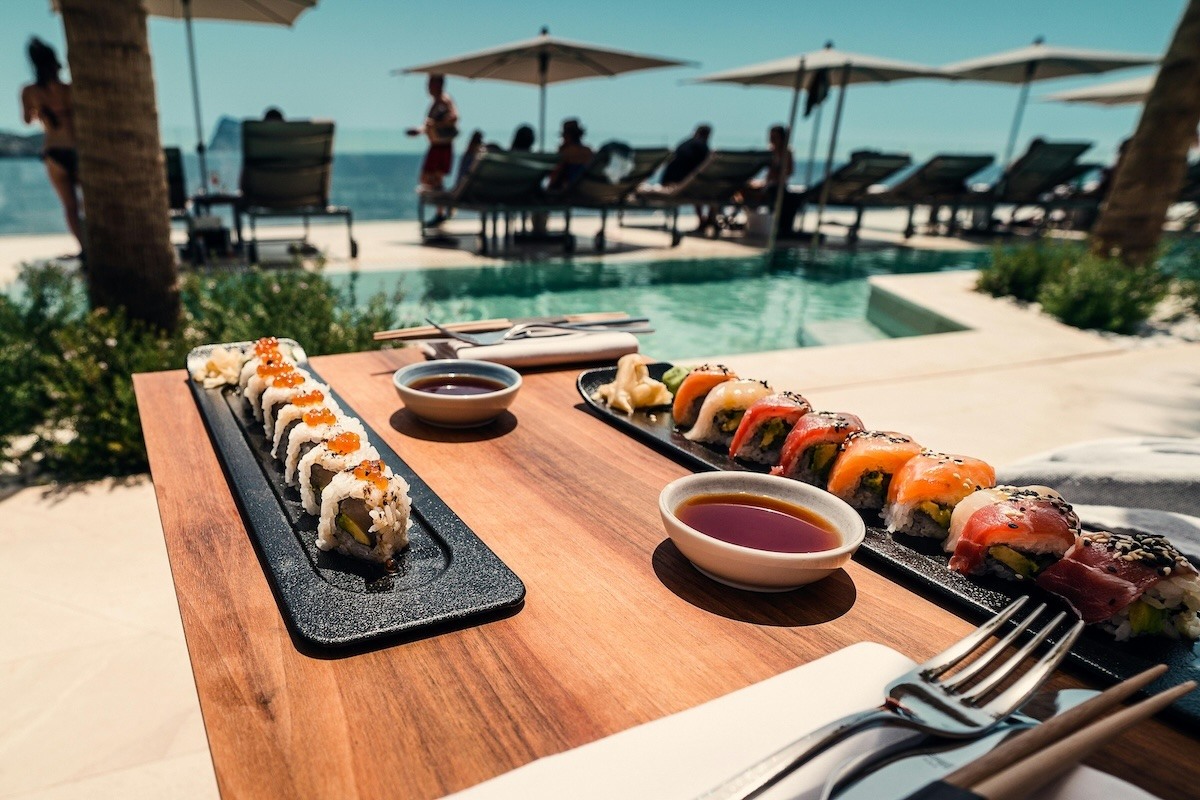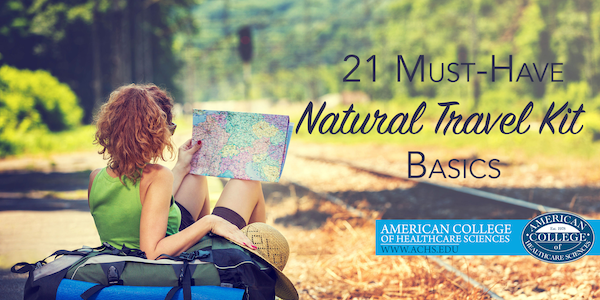One of the highlights of traveling is trying new cuisines and one-of-a-kind restaurants. However, for individuals with celiac disease, gluten sensitivities, or other food allergies, finding a safe place to eat can make travel stressful instead of relaxing.
Luckily, the world is catching up to individuals’ dietary needs as people gain a greater understanding of healthy eating and food intolerances. Many cities and countries are becoming exceptionally accommodating, and restaurants are more likely than ever before to have options and cater to different food sensitivities.
However, it still takes a bit of preparation on your part to guarantee a fun food experience on your travels. Here are our 6 tips for how to stay well-fed and healthy while traveling!
1. Use the keywords in your research
When planning your travel dining destinations, add the keywords “gluten-free,” “vegetarian,” or any other food restrictions to your Google search for local restaurants. Food and food culture is always evolving, and today, there are an increasing number of food and travel websites and blogs that list, review, and recommend safe restaurants for people with ingredient challenges.
Even when restaurants don’t specifically advertise a gluten-free menu, there’s no harm in asking. Great chefs take pride in their food, where they source their ingredients, and how their dishes taste. They want you to enjoy a unique dining experience, not suffer indigestion. Let them help you!
2. Try out a staycation-style trip in a new town
If possible, instead of staying at a hotel, book a vacation rental through VRBO, Airbnb, or a similar home rental website. Sometimes, these rentals offer more space than a hotel room at an equivalent or lower price and provide a refrigerator, kitchen, and utensils to prepare your own food!
If you have particularly challenging food restrictions, having the space to prepare your own dinner or pack your own lunch can help ease the pressure to find many acceptable restaurants. You can find out where to buy organic produce and products at local farmer’s markets, grocery stores, and co-ops. These sellers are likely to carry allergen-free and gluten-free products.
3. Explore the wrapped food options on flights
For international flights, most airlines offer gluten-free meal options, which can be reserved in advance. (Bonus travel tip: bring some almond butter to make dry rice cakes appetizing!)
You can also bring some of your favorite packable snacks! Domestic flights have even more flexibility with the food you can bring. Any food that can last a few days unrefrigerated is a great option.
Easy plane food ideas:
- Fruit like apples, pears, oranges, bananas, and peaches
- Raw-cut vegetables like carrots and celery
- Hummus or almond butter travel packs
- Energy bars
- Hard Boiled eggs
- Cold quinoa, potato, or chicken salads
- Dried oatmeal packets
- Gluten-free banana bread
The options are endless! Just make sure to bring a few napkins to keep your snack zone clean.
4. Road trips are always better with a cooler!
For road trips, you can bring all of the same foods that you’d bring on a plane, plus anything that can fit in a cooler.
For shorter day trips, packing hot soup in a warm thermos can make for a delicious picnic. A combination of salad, fruit, and energy bars can help complete your travel day meal!
5. Stay informed with labels!
Whenever you’re packing food for vacation, whether it’s a quick snack for the plane or a full cooler for a road trip, make sure you know exactly what you’re putting into your system.
The FDA requires food to be labeled in order to maximize your safety, so take ownership of your holistic health by always checking the labels. If you have a food sensitivity or allergy, such as a Red Dye 40 allergy, checking labels can be the difference between a tasty snack and an itchy throat.
If there is no label, it’s always safer to err on the side of caution and avoid it altogether. If you or someone you love has ever gotten food poisoning on vacation, you know that traveling is not the time to take unnecessary food risks.
6. As always, stay hydrated!
One of the most important factors for health, especially while traveling, is staying hydrated. You can make it easy by packing a stainless steel water bottle to refill at water fountains.
If your travel plans include flying, you can leave a few slices of lemon in an empty water bottle, and fill it with water after passing through security. Many airports now offer filtered water bottle filling stations, so you don’t have to worry about heavy metals or contaminants.
7. Support Nutrition with ACHS
Eating while traveling can be intimidating, especially if you’re new to making diet and lifestyle changes. But practice makes perfect! It takes time, but it does get easier to prepare and be resourceful when eating on the go.
ACHS’s Holistic Nutrition programs teach students everything about healthy nutrition habits, including prioritizing whole foods, balance and moderation, meal planning, and enjoying your meals. To build your confidence and help others with food allergies, you can look into one of our many certificates and programs on Holistic Nutrition.
If you’re ready to learn more about supporting holistic nutrition after returning from vacation, start studying at ACHS whenever it’s most convenient for you. Our academic calendar has a variety of sessions throughout spring, summer, and fall, so you can schedule your studies around your life. Check out the academic calendar here!
Want to learn more about holistic health and travel? Check out our related blogs:
This article is for informational purposes only. It is not intended to treat, diagnose, cure, or prevent disease. This article has not been reviewed by the FDA. Always consult with your primary care physician or naturopathic doctor before making any significant changes to your health and wellness routine.




